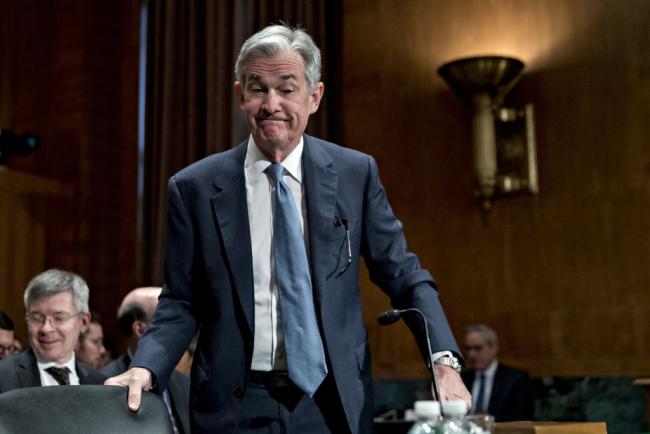(Bloomberg View) -- At the meeting this week of the Federal Open Markets Committee, the first with Jerome Powell as chairman, the Federal Reserve is likely to raise interest rates by 25 basis points, renew its commitment to two more hikes of similar size in 2018, and reaffirm the plan to gradually reduce the size of its balance sheet. These actions will constitute another step forward in the "beautiful normalization" of monetary policy.
None of this should come as any great surprise to financial market participants. Nonetheless, the March 21 statement and news conference, along with the meeting's minutes that will follow in a few weeks, should be of interest.
Five issues warrant particular attention:
- Balance of risks: While the economic baseline (growth and inflation) will remain largely unchanged to a tiny bit more favorable, there is likely to be more debate among FOMC members about the appropriate specification of the balance of risks. Since the last meeting, data and policy prospects have turned more mixed. Although some indicators of both domestic and foreign demand have weakened slightly, and some central bankers have expressed concerns about trade policy, the jobs report for February in particular was strong, with favorable prospects for both the demand side (particularly consumption) and supply side (particularly the potential for engaging slack) of the economy.
- Divergence in blue dots: Even if policy makers leave the overall economic balance of risk unchanged and stick to the average policy projection of two more hikes in 2018, we should expect greater divergence in the rate guidance provided by individual FOMC participants. This would be reflected in a large "fan chart" of dots, the interest rate projections of central bankers.
- Neutral rate: These developments will keep alive the robust debate about where r*, the economy's neutral interest rate, currently stands. Given recent developments, and after broad agreement that r* had tended to fall since the global financial crisis, there will be an inclination among some on the FOMC to postulate an upward migration, though the level would still remain below what prevailed below 2008.
- Market volatility: Unlike when Fed officials decided to hike rates the last few times, this FOMC meeting occurs in the context of a pick-up in financial market volatility. But rather than deter another rate increase, the minutes that follow this week's meeting will likely suggest that the Fed generally welcomes an orderly reset of market conditions as the basis for a sounder medium-term foundation.
- International conditions: Over the next several quarters, the ultimate success of the monetary-policy normalization process will be increasingly sensitive to what happens abroad. So far, the Fed's successful maneuvers have come in the context of a tailwind from the synchronized pickup in global growth, the depreciation of the dollar, and the determination of other systemically important central banks (particularly the Bank of Japan and the European Central Bank) to maintain dovish policies. It would be unwise for the Fed to assume that all three of these headwinds will continue over the medium-term. While they are unlikely to have much influence on policy thinking at this FOMC meeting, we should expect such international issues to get more attention in the months ahead -- not just in Washington (and Frankfurt) but also at the periodic gathering of central bankers at the Bank for International Settlements.
The sense of outcome predictability that surrounds this week's FOMC meeting is not just understandable but also is consistent with what has been a well-managed policy transition by the Fed. Yet, along with remaining questions about the behavior of basic economic variables such as productivity, inflation and wages, it should not hide the uncertainty that still surrounds important policy inputs. Indeed, it will be a while until FOMC meetings become boring -- and that includes those that seem highly predictable in terms of policy actions.
This column does not necessarily reflect the opinion of the editorial board or Bloomberg LP and its owners.
Mohamed A. El-Erian is a Bloomberg View columnist. He is the chief economic adviser at Allianz (DE:ALVG) SE, the parent company of Pimco, where he served as CEO and co-CIO. He was chairman of the president's Global Development Council, CEO and president of Harvard Management Company, managing director at Salomon Smith Barney and deputy director of the IMF. His books include "The Only Game in Town" and "When Markets Collide."
